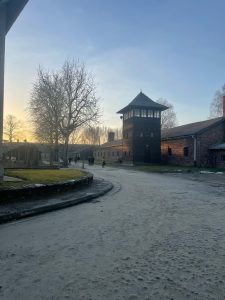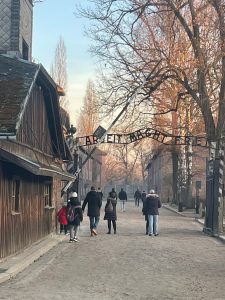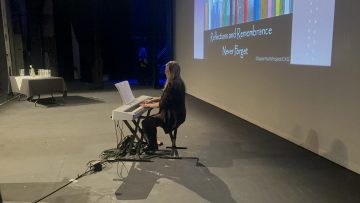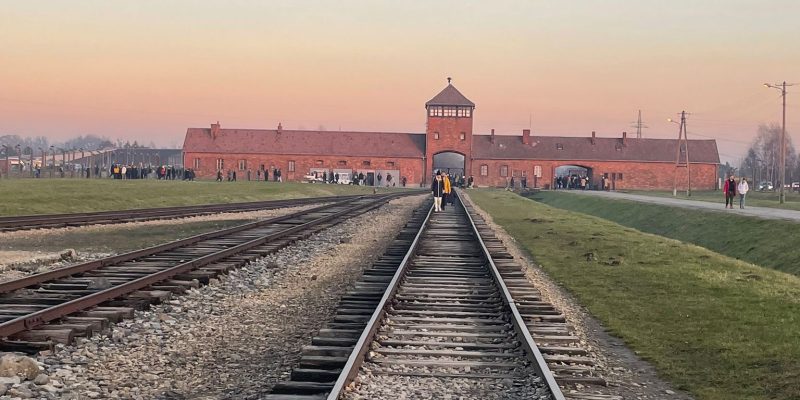Holocaust memorial-day takes place on the 27th of January, and this year marked the 80th anniversary since the liberation of Auschwitz-Birkenau.
The holocaust was a systematic persecution and murder of 6 million Jews by the Nazis, its allies and collaborators. This tragedy happened in Europe between 1933 and 1945.

Photo taken by: Matty Krupa
Why were the Jewish targeted?
After Germany’s loss during the First World War, the Germans needed someone to blame for their social, economic, political and cultural problems.
They started to become radically anti-semitic and played the blame game on the Jews.
How did the Nazi’s gain popularity?
The Nazi regime gained followers due to the instability of Germany at the time.
From the end of the first world war, there was a huge fear of communism.
The Weimar Republic who were in charge became massively unstable and eventually crumbled.
They also were facing economic strain from the ‘Great Depression’.
Leaving the promises the Nazi party made, a glimmer of hope.
Auschwitz-Birkenau was the biggest, most infamous concentration camp, located in Oświęcim, Poland.
Between 1940 and 1945, 1.1 million people were murdered within those walls.

Photo taken by: Matty Krupa
In Dorset, the BCP council have been coming together in remembrance every year since 2001, to commemorate those who lost their lives.

Photo taken by: Samira Gover
Tom Hayes, MP for East Bournemouth attended the memorial and shared how he felt upon visiting the camps,
“I went to Auschwitz-Birkenau because, I wanted to see, to feel, and to know exactly what had happened there. And I will never, ever forget that experience, to walk among the remnants of the camp, to see the exhibitions, to hear from survivors.”
Mr Hayes continued with what lessons he felt he learnt during this experience and what needs to be remembered for the future.
“It really taught me about the discrimination, the hatred, the horrors that are possible in our world, and we need to make sure that we never, ever repeat that.”
Councillor Millie Earl also attended the memorial which took place at the Lighthouse Theatre in Poole.
Cllr Millie Earl told us about how her position changes how she thinks about certain situations such as this one.
“We have to really listen to those experiences and make sure that we are always checking ourselves and and making sure that we’re standing up for hatred, because it’s only when people in those positions of power, are really going to put in the effort to make sure we don’t export hatred from certain places of the world, and actually we are key to promoting peace so everyone can live a really fulfilled life.”
Lynda Ford-Horne, chair of the committee that runs these memorial events, spoke about today’s world, and how we haven’t really come that far since these tragic events took place.
“Why is it so important? Because the world still hasn’t learnt. They say, never again, and it’s happened again and again and again.
“You heard about Bosnia, and there’s lots of other genocides that have happened, and you think about Sudan and all the other countries where there’s conflict. The Holocaust started in a very small way. It started by making the others feel belittled, calling them things like rats and vermin, and then marginalising them.
“And that unfortunately still happens in the world, and so it’s important that we teach people that a small hatred can turn into a big hatred.”
Find out more by listening below


 Ryanair axes Bournemouth-Agadir route over government’s APD hike
Ryanair axes Bournemouth-Agadir route over government’s APD hike